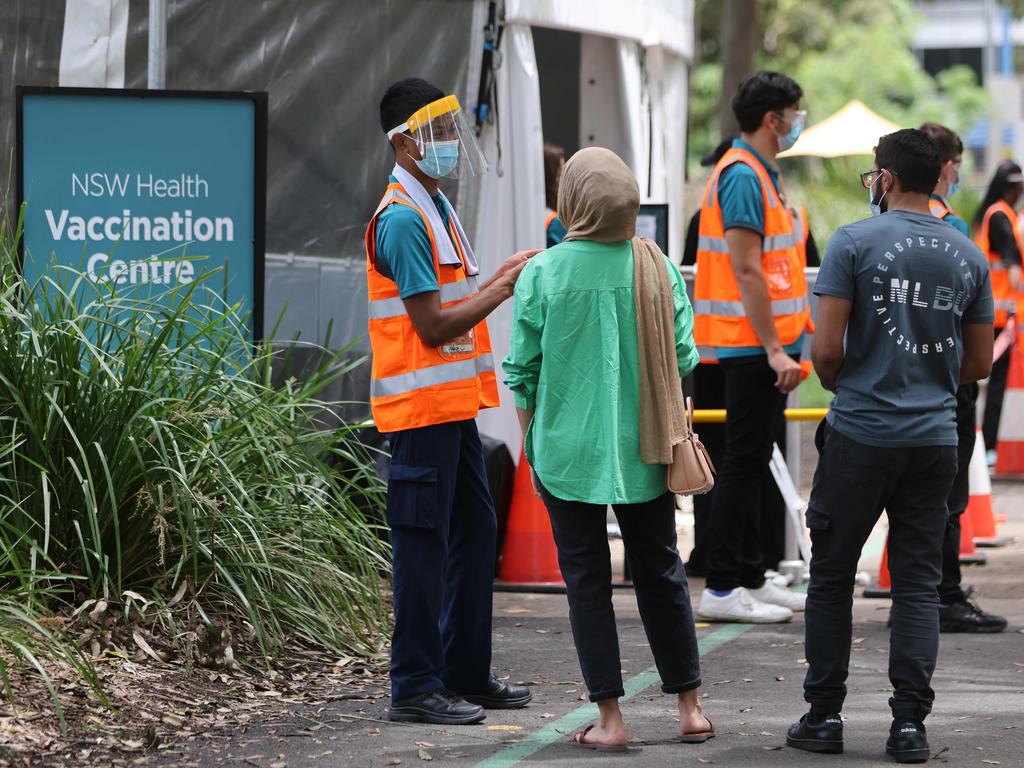Australia’s medicines regulator has confirmed the first cases of rare heart inflammation after booster vaccines.
As of January 9, there have been six reports of likely myocarditis – four after Pfizer and two after Moderna – and 12 reports of likely pericarditis – 10 after Pfizer and two after Moderna – after a third or booster dose of a Covid-19 vaccine, according to the Therapeutic Goods Administration’s (TGA) most recent safety update.
“The TGA is monitoring the safety of booster vaccine doses in adults,” the regulator said.
“It is not expected that the types of side effects will be different to first and second vaccine doses based on the results of clinical trials, and observations from regulators overseas where more booster doses have been given.”
Myocarditis, or inflammation of the heart muscle, and pericarditis, or inflammation of the lining around the heart, are serious but rare side effects associated with mRNA vaccines.
According to the TGA, myocarditis – which it describes as “very rare” – is reported in about one to two out of every 100,000 people who receive Pfizer and two to three out of 100,000 who receive Moderna.
But it is more common after the second dose in teenage boys at 12 cases per 100,000 for Pfizer and 17 per 100,000 for Moderna, and young men under 30 at six per 100,000 for Pfizer and 12 per 100,000 for Moderna.
“To January 9, 2022, we have received approximately 950 reports of suspected adverse events identified after a third or booster dose,” the TGA said.
“This includes a small number of cases of myocarditis and pericarditis. The most common adverse events reported to the TGA following a booster dose are swollen lymph nodes (also called lymphadenopathy), headache, fatigue, muscle pain and fever. Swollen lymph nodes are a normal and known side effect of vaccines and occurs when the immune system is stimulated and were seen in the clinical trials.”
The Sydney Olympic Park vaccination centre. Picture: Damian Shaw/NCA NewsWire
The TGA says it has also received about 3000 reports of adverse reactions after vaccination in children and adolescents.
The most commonly reported reactions in 12 to 17-year-olds are chest pain, headache, dizziness, nausea and fever.
“Reports of more serious effects following vaccination in children in the US were extremely rare with 100 reports from 8.7 million vaccine doses – the most common were fever, vomiting and in some cases seizures,” it said.
“Importantly, myocarditis was also very rare in this age group, with 11 confirmed reports from over eight million doses – these were all mild cases. The TGA is closely monitoring adverse event reports in this age group and will communicate any safety issues if they arise.”
As of January 9, from 28.4 million doses of Pfizer and 2.1 million doses of Moderna, there have been 467 cases of likely myocarditis – 423 from Pfizer and 44 from Moderna – and a further 1048 cases classed as “suspected” myocarditis – 952 from Pfizer and 96 from Moderna.
Suspected cases include those reporting both myocarditis and pericarditis. There have been an additional 2183 cases of suspected pericarditis alone – 2015 from Pfizer and 168 from Moderna.
The TGA stresses that myocarditis is “often mild, and cases usually resolve after a few days with treatment and rest”, but about half of cases are admitted to hospital.
“Five people with confirmed myocarditis were treated in intensive care,” the TGA says.
“This represents about 1 per cent of all confirmed myocarditis cases. Most patients admitted to hospital were discharged within four days.”
According to Health Department figures from Sunday, 92.5 per cent of over-16s in Australia are now fully vaccinated, and nearly five million people over the age of 18 have received more than two doses.
It comes after Australia’s chief medical officer Paul Kelly said a fourth booster dose was on the cards.
Professor Kelly said the Government’s vaccine advisory group, the Australian Technical Advisory Group on Immunisation (ATAGI), would “absolutely” consider the possibility.
“[ATAGI] is continuing to meet weekly. They will absolutely deliberate on fourth or subsequent doses,” Prof Kelly told reporters in Canberra on Saturday.
Year 12 students wait for Pfizer vaccinations at Qudos Bank Arena in Sydney. Picture: Dean Lewins/AAP
Earlier this month, Israel became the first country to begin rolling out a fourth dose of the vaccine.
Denmark and Chile have also begun rolling out a second booster to people with risk of serious illness.
However, there is growing pushback to boosters, including from the World Health Organisation (WHO) and the European Medicines Agency (EMA).
Last week, the EMA said there was still no data supporting the need for a fourth dose, and warned frequent boosters could lead to “problems with immune response”.
“While use of additional boosters can be part of contingency plans, repeated vaccinations within short intervals would not represent a sustainable long-term strategy,” EMA vaccine strategy chief Marco Cavaleri said at a media briefing, according to Reuters.
“[Boosters] can be done once, or maybe twice, but it’s not something that we can think should be repeated constantly.”
That came as WHO warned a vaccination strategy “based on repeated booster doses of the original vaccine composition is unlikely to be appropriate or sustainable”.
The UK’s head vaccine adviser, Professor Sir Andrew Pollard, who helped develop the Oxford-AstraZeneca vaccine, also called for an end to ongoing mass vaccination.
“It really is not affordable, sustainable or probably even needed to vaccinate everyone on the planet every four to six months,” Prof Pollard told BBC Radio 4’s Today program. “In the future, we need to target the vulnerable.”
Pfizer chief executive Albert Bourla last week said two doses of its current Covid-19 vaccine offer “very limited protection, if any” against the Omicron variant, while three doses “offer reasonable protection against hospitalisation and deaths”.
More Coverage
26-year-old’s death officially linked to PfizerNew payment for vaccine heart condition
Dr Bourla said Pfizer was working on an Omicron-specific version of the vaccine, which should be available by March.


